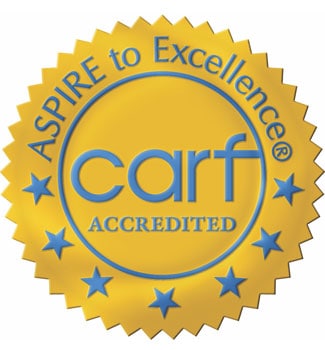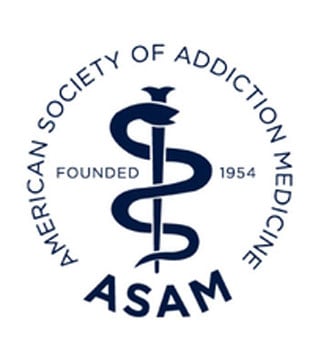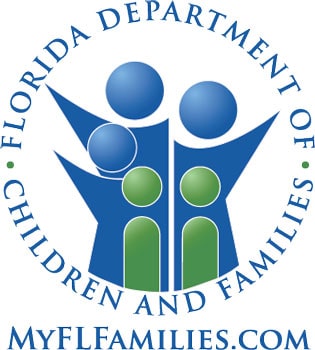Continuing Care

What is Continuing Care Planning?
Often known as “discharge planning,” continuing care planning is a critical component of treatment that helps the entire family system prepare to navigate the challenges of life in recovery. An organized and detailed continuing care plan can provide stability for the person seeking recovery, and peace of mind for their loved ones. Below are a few key components of a continuing care plan, as well as options to consider as your loved one engages in treatment.
When does continuing care process start at Hanley Center?
Continuing care planning in our programs begins at the onset of treatment. Our Alumni Care Team works side by side with the primary therapist and our multidisciplinary team to create a comprehensive plan for every patient who enters our program.
Who handles continuing care programming at Hanley?
Each patient at Hanley will work alongside their personal Alumni Care Coordinator to develop a plan that is customized to their strengths and challenges. These trained addiction professionals coordinate with each patient’s auxiliary points of contact to develop plans that take all aspects of healing into account. Every day, our coordinators attend our multidisciplinary team meetings, which allows them to better understand each patient’s unique history and clinical recommendations.
Who does Hanley Center involve in the planning process?
While continuing care planning begins with the patient, many other stakeholders will likely be involved in the process. Most patients in our treatment programs sign consents that allow providers to connect with auxiliary points of contact, including loved ones or professional referents. Those trusted and important contacts will naturally be included in the planning process through ongoing communication with our team. Though loved ones or parents cannot ultimately dictate a patient’s continuing care plan, they may provide valuable insight into the needs of the family. Together, our patients, their families, professional referents, and Hanley Center’s multidisciplinary treatment team will build a continuing care plan that reflects these important relationships and support services.
Treatment Modalities
Key Components of a Continuing Care Plan
The team at Hanley Center takes the individual needs of every patient into account, and we develop continuing care plans that include a range of clinical, medical, and spiritual recommendations.
Counseling
Ongoing counseling is an essential component of most patients’ continuing care plan. Recommendations by our clinical team may include work with an individual or family therapist or varying levels of clinical support, such as Outpatient Services or Intensive Outpatient Programming. These clinical services provide support for the challenges that arise during life after treatment and may include group or individual therapies. As a team, we coordinate with our trusted professional referents to guide our patients to ethically sound clinical services that help them address the natural ups and downs of a life in recovery.
Medication
Co-occurring, or “dual diagnoses,” disorders are common with addiction, and our treatment team is dedicated to providing sophisticated medical services to each of our patients. After they leave our care, many of our patients will need to adhere to the medical recommendations laid out for them during treatment. We ensure that our patients understand how and when to take any medications prescribed to them. We also connect them with local doctors or mental health professionals, such as psychiatrists, who can monitor their ongoing progress.
Family Support
Addiction impacts the entire family system, and clinical studies have consistently shown that outcomes improve when families work on their own recovery, self-care, and wellness. Our treatment professionals offer support to the entire family through our Five-Day Family Program. These programs also take into every family member’s needs into account once the patient leaves our care. This type of support may involve individual, marriage, or family counseling, as well as support groups for family members (such as Families Anonymous, Al-Anon, or Adult Children of Alcoholics). This allows each member of the family system to heal from unhealthy dynamics that keep addiction alive.
Alumni Care
12-Step programs allow people to learn practices that improve their lives and engage in an international network of support. These fellowships often provide the motivation and guidance necessary to maintain lifelong recovery. Alongside these recommendations, we offer comprehensive Alumni Care Services, including workshops, meetings, and events, and we include these recommendations in our patient’s continuing care plans. At Hanley Center, Alumni Care begins at admission, carries throughout treatment, and lasts a lifetime.
Accountability and Structure
Residential treatment is a well-structured process during which nearly every minute of the day is accounted for. Leaving a rigorous environment of this nature without a concept of how to spend one’s time after discharge can unnecessarily set a patient up for failure. Together with their primary therapist, our patients develop a working schedule which includes medical and clinical recommendations, as well as other sober activities (e.g., volunteering, going to the gym, engaging in a 12-Step program, work/school). All of these aspects provide much-needed accountability and structure.
Safe Living Accommodations
For many of our patients, returning to a chaotic or unhealthy environment can mean disaster. It is important that patients discharge to a comfortable living environment that supports ongoing recovery. As families approach continuing care plans, our team will work to ensure that safe living accommodations are available immediately following treatment. Sometimes, a care plan may also include a step-down treatment program such as transitional living.

The Goal of Hanley Center’s Continuing Care Team
Creating a comprehensive continuing care plan may seem daunting, but it certainly doesn’t have to be. While the goal of any treatment stay is ongoing health and sobriety, the most successful outcomes occur when the patient develops healthy relationships and interests that do not end at “graduation” from our care. Ultimately, recovery is about breaking down old thought patterns and learning how to apply recovery principles to everyday life. Through ongoing collaboration with Hanley Center’s team, the entire family is able to discover a plan that supports freedom from addiction — not only for today, but for a lifetime.
Hanley Center: Most Insurance Accepted
Address: 933 45th Street
West Palm Beach, FL 33407




